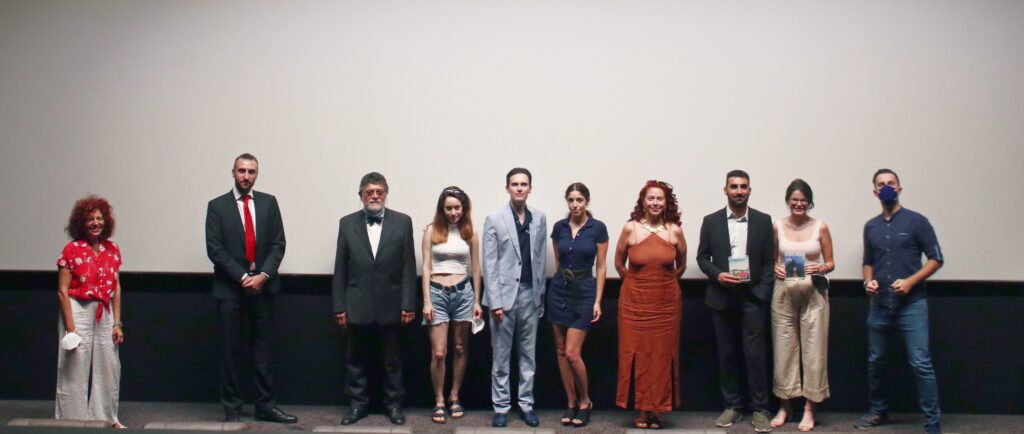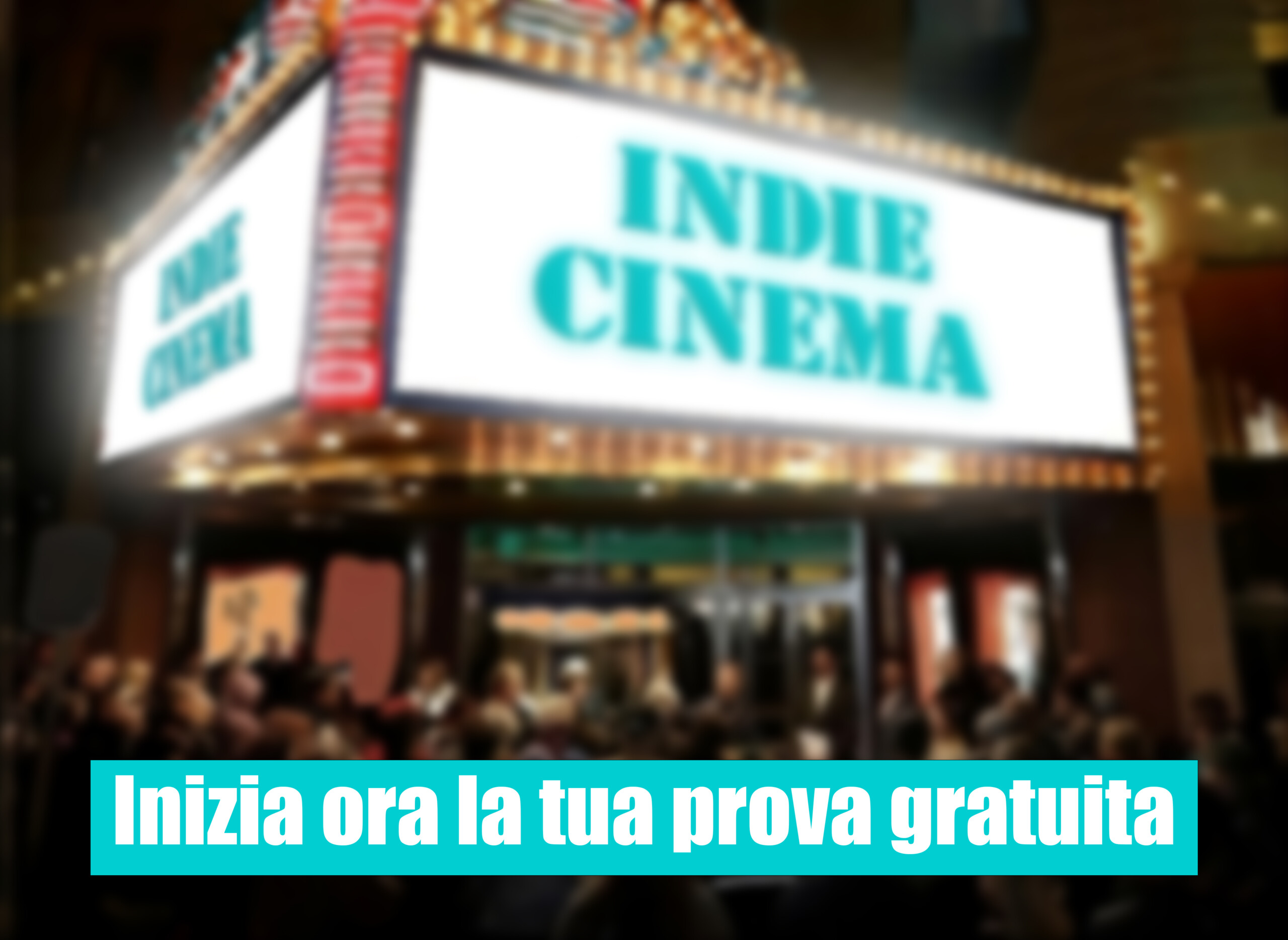
Our conversation with the author of “Amistà”, a highly appreciated short film in competition at the third edition of Indiecinema Film Festival
Among the 26 works included in the very rich and varied competition of the Indiecinema Film Festival, third edition, there is also Amistà by Donato Leoni, which we intend to screen soon at the Caffè Letterario in Rome. A very dense and interesting CV, that of the young filmmaker. And this is also demonstrated by certain specific features of the short in question, where music is inserted as a diegetic element, instead of words, effectively condensing the sense of the relationship between the two protagonists.
We talked about it with the director these days!

A rich cinematographic education, loving (good) music
First of all, Donato, could you tell us about your cinematographic training? We read, for example, that you also carried out interviews with important entertainment personalities, before making “Amistà”…
I have extensive training in the artistic field… I graduated in Cinema, Television Production and New Media from the Roma Tre DAMS University, I graduated from the Pietro Sharoff Academy of Dramatic Arts, I also graduated as a Photographer from the Italian Academy of Photography, I teach SOCOM as a teacher at the Cecchignola Military Engineers in Rome and even sing as an opera tenor. I have been making short films since I was 12 years old, so far I have created more than 45 screenplays, shot 25 short films, 10 feature films and 5 documentaries, some totally independent and with zero budget, others with sponsors and productions behind them. I interviewed Bud Spencer in collaboration with the University a few months after his passing, mine was his last interview which is still unpublished today, I interviewed Lino Banfi, Leonardo Fioravanti, Michael Mann, Philip Michael Thomas and others. Still in the VIP area, I had the pleasure of meeting the entire cast of Fast And Furious I have received compliments on my tenor voice from Andrea Bocelli, Il Volo, Russell Crowe, Paolo Bonolis and Fiorello.
In the short film we selected, “Amistà”, music plays a leading role: it magnificently accompanies the emotions of the two protagonists, it even seems to guide them in their life experience. How did you come up with the idea of shooting a short film without dialogue, in which the relationship between the characters is exposed on the screen only through gestures, music and song lyrics?
Amistà was born from a mental mash up of memories of experiences personally lived with my friends over a period of 15 years, all these experiences were characterized by the almost total absence of dialogue, therefore I left the characters and their actions to be described by music.

Again upon music
The Beach Boys, Simon and Garfunkel, Beatles, Procol Harum, just to name a few. You are a decidedly young actor and director, but the musical quotes in this cinematographic work of yours refer to immense artists, from an era that seems increasingly distant… why this choice (certainly of quality) compared to what the contemporary musical panorama offers? And was it “problematic” to include songs by such famous musicians?
It’s not complicated if it remains “fair use”, non-profit but only for educational purposes, and even if it were complicated I wouldn’t care, music is world heritage, if I don’t make a profit on it no one will ever be able to forbid me from using it… I chose these songs because I was inspired by the era lived by the last “hippies” post-Vietnam, I have always considered myself a Hippie disguised as a Yuppie, which is why I made sure that the characters were fans of that era, they used the same 360 degree style but setting it in the modern era. Let’s not talk about today’s musical panorama which I am deeply disgusted by.
Remaining in the musical field, the Italian artist Lucio Battisti sang: “Può darsi ch’io non sappia cosa dico / Scegliendo te, una donna, per amico” (Trandslated in English: “It may be that I don’t know what I’m saying / Choosing you, a woman, for a friend”).
Do you think you have broken a small taboo, bringing the relationship between a man and a woman to the screen but placing at the centre, contrary to what is usually seen, a discussion of pure and disinterested friendship?
I have always believed a lot in friendship between men and women, I have had many pure and disinterested female friendships. I think that there may be an aesthetic attraction in one of the two friends, but if it is managed, it does not become an obstacle in the friendship, on the contrary it can function as an incentive to have a deeper and more intense relationship without any sentimental involvement. If there was a feeling, the latter in my opinion would make the friendship itself even more deserving of symbolic honor, since to keep it pure, one would have to fight with one’s own instinctual and psychic impulses belonging to the laws of attraction. Becoming almost a heroic and mythical battle with one’s deepest self, for a higher value.

Tne making of such short movie
You didn’t just write and direct the film, but you also star in it, alongside Marta Beccarini. There is a great naturalness in you, so how did you set up your interaction on set?
During the scenes we didn’t act much, we lived those experiences with real fun, for example we really laughed in the car, she really got scared with my blasts, as well as with water balloons and thrown flour, absurdly the most difficult part to play it was the argument, there was a very specific script that we followed, but in a rather spontaneous way. In real life we are brothers-in-law, we are not great friends and in fact we see each other very little, we have very different opinions, therefore our characters carry out actions in the short that we have never had the opportunity to experience before, perhaps it was precisely for this reason that allowed to live them” in this brief parenthesis. It was definitely fun, but I can’t tell you why this doesn’t happen in real life and I don’t think she can either, maybe because there has simply never been the right opportunity, the circumstances, we barely live there as relatives.
A caption, placed towards the end, warns us that Amistà was made with zero budget in less than 24 hours. Meanwhile, we congratulate you on the optimization of time on set, but how long did the post-production work take? The editing itself seemed very careful.
I had the idea for many years, it took me 4 months to write it, 1 month to do casting (then we resolved it with my sister-in-law), I shot everything in 24 hours and edited it in 12 hours of continuous work on the PC. I put the caption because at the first Festival where the short took part, there were some of my colleagues who boasted of shooting great shorts in 72 hours… then a sort of “challenge” arose between colleagues, I beat everyone. From 2021 to date, Amistà has obtained 8 Official Selections, 4 Finalists and 15 first prizes in the relevant categories in Festivals around the world.
Regarding the “zero budget” issue, being the same situation in which our festival operates, we would like to ask you how difficult it was to complete the short with these assumptions and what you think, more generally, of the possibilities offered to independent cinema in Italy.
I don’t want to be populist but the latest Marvel film was made with 250 million dollars… with the same price two pediatric hospitals could have been built, why spend all this money on audiovisual entertainment works? I think that our eye has become “impure”, too accustomed to the creators of cinematography, now able to feed only on products with such high budgets, then going on to snub independent works or series b, c, z, indeed becoming intolerant towards such works and this is very wrong! If you take an elderly person or a child, they will have no problem enjoying an audiovisual work created with zero budget. Many people tell me: “So it’s a stupider and not pure eye”, I don’t agree! I find an eye that is only able to enjoy hyper-expensive works more limited and limiting than an eye that is able to get excited by a student’s short films in the same way as it gets excited by Hollywood ones, am I wrong? In Italy we have excellent directors, screenwriters, actors and independent workers who unfortunately have no breathing space and should have more!
Finally, a mere curiosity: your biographical notes also talk about some very heartfelt homages to Miami Vice, can you tell us something about how this passion of yours was born, how you created these works and how they were received by the public?
It would be too long to write here, just think that I made 9 remakes of the television series Miami Vice, even receiving compliments from the two leading actors and the original director of the series. I spent years of my life there, I wrote my degree thesis there and I based my lifestyle on it. For these products I rented one of the real Ferrari driven by Don Johnson in the television series, I had the collaboration of the original costume designer of the series who gave me advice electronically, I became specialized in 80s cinema and in recreating those atmospheres. I was even invited to the official 40th anniversary of Miami Vice in Miami. My remakes/reboots have had an excellent response among the fandom of the series, distributed in streaming on various platforms.
A vision curated by a filmmaker, not an algorithm
In this video I explain our vision




